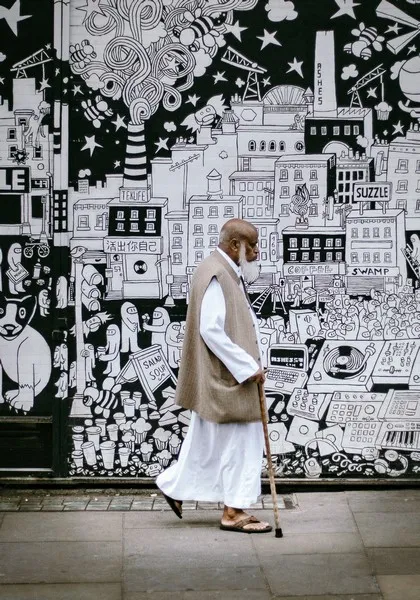Table of Contents
- What Is Postmodernism?
- Key Concepts of Postmodernism in Culture
- Critique of Modernist Assumptions
- Postmodernism and Popular Culture
- Criticisms of Postmodernism
- Postmodernism in the Digital Age
- Conclusion
Postmodernism represents a radical departure from traditional approaches to understanding culture. By challenging meta-narratives, deconstructing established norms, and embracing pluralism, postmodernist thinkers have offered new ways to interpret the social fabric of contemporary life. This article explores the postmodernist view of culture, examining its key concepts, critiques of modernist assumptions, and its relevance in understanding today’s diverse and rapidly evolving cultural landscape.
What Is Postmodernism?
Postmodernism is a theoretical framework that emerged in the mid-20th century, challenging the ideas of modernity that dominated the Enlightenment and the Industrial Age. Modernity is associated with rationality, progress, and the pursuit of universal truths. In contrast, postmodernism rejects these notions, arguing that truth is subjective and culturally constructed.
Postmodernism gained prominence in disciplines such as art, literature, philosophy, and sociology. Thinkers like Jean-François Lyotard, Michel Foucault, and Jean Baudrillard critiqued the assumptions of modernity and emphasized the fragmented, contingent, and decentralized nature of knowledge and culture. In essence, postmodernism shifts focus from seeking universal explanations to celebrating the diversity and complexity of human experiences.
This perspective is particularly relevant in an age marked by rapid technological advancement, globalization, and the proliferation of media. Postmodernism allows for a nuanced analysis of how these forces shape culture, power structures, and individual identities.
Key Concepts of Postmodernism in Culture
To understand postmodernism’s view of culture, it is essential to explore its foundational concepts:
Deconstruction
Deconstruction, a concept popularized by Jacques Derrida, involves unpacking the structures of meaning embedded in texts, symbols, and social practices. In cultural terms, it means questioning the dominant narratives and uncovering hidden biases and assumptions. For instance, deconstruction might analyze how historical narratives prioritize certain voices while marginalizing others, such as the experiences of colonized peoples.
Postmodernists argue that culture is not a monolithic entity but a series of interwoven discourses that can be interpreted in multiple ways. For example, a historical event may be narrated differently depending on the perspectives of various social groups. This multiplicity of interpretations challenges the notion of “objective” history, advocating instead for a pluralistic understanding of the past.
Hyperreality
Jean Baudrillard introduced the idea of hyperreality, where the boundary between reality and simulation becomes blurred. In a hyperreal world, representations and symbols take precedence over reality itself. For instance, in consumer culture, advertising often creates an idealized image of products that bear little resemblance to their practical utility.
Hyperreality is evident in phenomena like social media, where curated images and personas create simulated realities that influence cultural norms and personal identities. Consider the rise of influencers who craft aspirational lifestyles that may be far removed from their everyday realities. These hyperreal constructs not only shape individual aspirations but also redefine societal benchmarks of success, beauty, and happiness.
Pluralism and Fragmentation
Postmodernism embraces cultural pluralism, acknowledging the coexistence of diverse and often conflicting perspectives. Unlike modernist approaches, which seek universal principles, postmodernism celebrates fragmentation and multiplicity. This perspective is particularly useful in understanding globalization, as cultural exchange leads to hybrid identities and practices.
For example, contemporary music often blends genres from different cultural origins, reflecting the fragmented and pluralistic nature of global culture. Similarly, the fusion of culinary traditions in metropolitan cities highlights how globalization fosters cultural hybridity, creating spaces where diverse influences coexist and interact.
Power and Knowledge
Building on Michel Foucault’s work, postmodernists emphasize the interplay between power and knowledge. Foucault argued that knowledge is not neutral but deeply entangled with power structures. Institutions such as schools, hospitals, and media outlets produce and disseminate knowledge that reinforces existing hierarchies. By critiquing these power dynamics, postmodernism reveals how cultural norms are constructed and maintained.
For example, the medicalization of certain behaviors—such as defining hyperactivity as a disorder—reflects cultural values and institutional interests. Postmodernism questions who benefits from such categorizations and how they shape societal perceptions of normalcy.
Critique of Modernist Assumptions
Postmodernism challenges several key assumptions of modernism:
Universal Truths
Modernism’s quest for universal truths is critiqued by postmodernists as overly simplistic and exclusionary. They argue that what is considered “true” varies across cultures and historical contexts. For example, scientific knowledge is not inherently neutral but is shaped by cultural values and power dynamics. This critique extends to fields such as education, where curricula often reflect dominant cultural narratives while marginalizing alternative perspectives.
Progress and Rationality
Get the full article AD FREE. Join now for full access to all premium articles.
View Plans & Subscribe Already a member? Log in.





